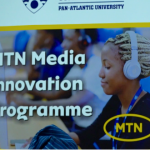Need a job? Get experience! Need experience? Get a job!
This predicament has frustrated fresh graduates since the Industrial Revolution. As a fresh graduate without work experience, you have a challenge writing a resume, when you have nothing but education to work with. What you need is dedicated job research and customizing each resume for a chance at producing a persuasive marketing tool.
No matter how qualified and confident you may be for a job, it is your resume that first introduce you to your potential employer; hence, the need to give your fresh graduate resume some serious work before putting it out.
If you are a fresh graduate without work experience, here are tips to show you resume boosters and samples of fresh graduate resume to help you create a unique fresh graduate resume.
[sociallocker]
[wpdm_file id=9]
[/sociallocker]
Your First Step
Your first step is to open your word document (or a plain sheet of paper) and write a multiple-page template resume that includes familiar requirements for your target career field. Your resume format is your multi-purpose resume, containing any and every specific and general information about you, which you can tweak to suit every job you apply to; and should reflect your qualifications in your target field(s).
You will customize your follow-up resume to reply to specific job positions. Take care to match requirements with your qualifications in your opening skills summary and throughout your resume.
Tweak your Fresh Graduate resume for every Job Application
I’ve said that before but need to reemphasize; one complete resume cannot match every job you want to apply. A valuable skill for one job position may be a disadvantage for another. For instance, if you are good at sitting at a computer for 15 hours a day; that may be good for a programming job but a resume killer for a marketing job. Ensure to customise your CV/resume for every job application. Research the company you are applying to, and work your resume as best as you can to fit into the companies need.
Evaluate your School experience
Don’t overlook little events that shows experience in accepting responsibility and demonstrate reliability. Consider the following factors to identify the experience and skills you garnered in higher institution and match your information with the job you hope to land:
✓ Work: Internships, summer jobs, part-time jobs, campus jobs, entrepreneurial jobs, temporary work, and volunteer work.
✓ Sports: Proven ability to achieve goals in a team environment.
✓ Awards and honors
✓ Research papers and projects
✓ Campus leadership
✓ Grade Point Average (GPA): If it’s 3.0 or above; otherwise, omit it (some advisers set the GPA floor at 3.5).
✓ Technical skills and software facility
Concerning student jobs, one technique to make the most of your experience is to separate your jobs into fragments and explain them. For example, don’t say that your job title was “office help” or “office clerk” and stop there.
Instead, do this:
1. Divide your job into functions. Some examples:
telephone reception, telephone sales, social media sales, contract negotiations, purchasing, inventory, staff training, computer application training, Web design, public speaking, and written communications.
2. Describe each function in terms of your accomplishments and their outcomes.
Make your aim clear
If you use an objective statement, make it clear. Don’t use illogical statements, like this one:
Seeking a challenging position that will allow me to actualize my talents in saving the world, with good potential for professional growth and pay commensurate with my ability.
Instead, cut to the chase, like this:
Research position in product marketing field in Abuja
You can add a summary, too.
Get rid of unsupportive information
Don’t fatten your portfolio with irrelevant data or pictures. Include an activity only if it reveals skills, competencies, accomplishments, results, or other qualification to support your intended job.
If an exhaustive search of your hobbies, campus activities, or community service turns up absolutely nothing worth putting on your resume, your education must carry the entire weight of candidacy for employment. Milk it dry.
You can download the Book









